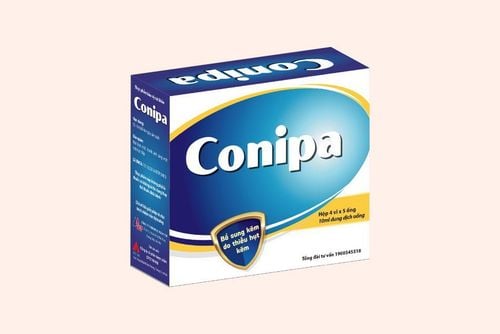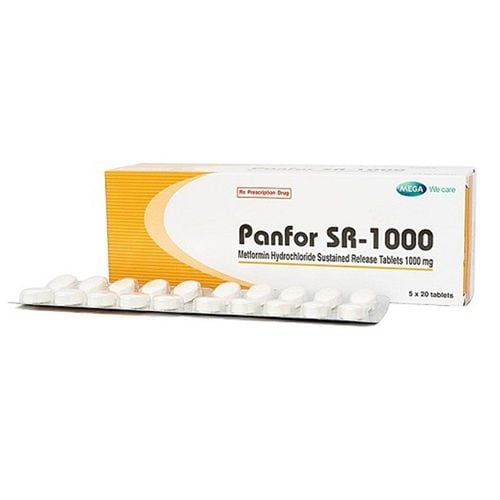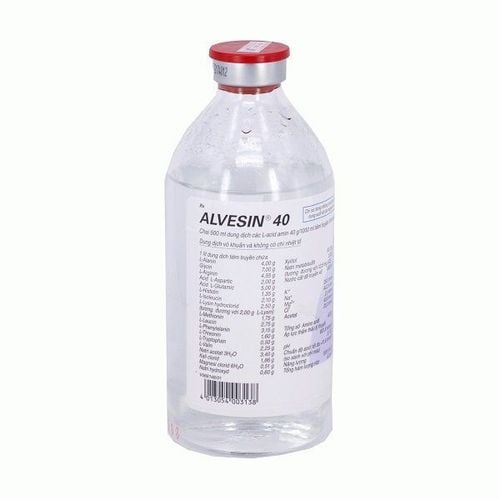This is an automatically translated article.
Protein is the most important nutrient for each person's health, responsible for the growth and maintenance of tissue cells, creating biochemical reactions necessary for metabolism.... With such essential roles, it is very important to recognize whether the body lacks protein or not.
1. How much protein does the body need?
The cause of protein deficiency is mainly due to an unreasonable diet that takes place for a long time. Every day, you need to get at least 10% of your daily calories from protein to keep your body healthy. Adult women need about 45 grams of protein/day and men need about 52 grams/day. There are many food sources and many different ways that you can provide a good amount of protein in one such as:
Eating a 6-ounce box of low-fat Greek yogurt for breakfast helps the body get about 17 grams of protein; Eating a serving of skinless chicken breast for lunch has about 25 grams of protein; Eating a cup of black beans at dinner will provide about 15 grams of protein into the body.
2. Signs of protein deficiency in the body
Swelling is a sign of protein deficiency Swelling, edema is one of the most common signs that you are not getting enough protein. Edema usually occurs in the abdomen, legs, feet and hands. There are many possible causes of edema, and it could be due to proteins circulating in the blood (especially albumin) that are responsible for keeping fluid from accumulating in your tissues. Therefore, if the body lacks protein, you are very prone to swelling on the body. When edema appears, you need to go to a medical facility to find out the exact cause to get the right treatment.
Mood changes Unexplained mood swings are also one of the signs that reflect a lack of protein in the body. Your brain uses chemicals called neurotransmitters to relay information between cells. Many of these neurotransmitters are made from amino acids - the building blocks of proteins. So, a lack of protein in your diet makes it impossible for your body to make enough of those neurotransmitters, which in turn alters the way your brain works. Mood also changes abnormally accordingly. With low levels of dopamine and serotonin, for example, you may feel depressed or overstimulated.

Tâm trạng bị thay đổi là một trong các dấu hiệu cảnh báo cơ thể thiếu protein
Hair, nail and skin problems Proteins like elastin, collagen and keratin are involved in the formation of hair, nails and skin. When your body can't make them, you may have brittle or thin hair, dry and flaky skin, or deep lines in your nails. However, in some cases, skin, hair, and nail problems don't come from your diet. But if you do show these signs, see if you are suffering from a protein deficiency.
Weakness and fatigue Weakness and fatigue is one of the signs of protein deficiency. Studies show that just one week of not eating enough protein can affect the muscles responsible for your posture and movement, especially for people 55 and older. Over time, a lack of protein can cause you to lose muscle mass, which in turn reduces strength, makes it difficult to balance, and slows down your metabolism. It can also lead to anemia, when cells don't get enough oxygen, leaving you tired.
Hunger Feeling Protein provides energy for your activities. It is one of the three main sources of calories, along with carbs and fat. If you feel hungry and want to eat more despite eating your main meals, it could be a sign of a protein deficiency. Studies have also found that eating foods with protein helps you feel fuller throughout the day.
Wounds that take a long time to heal People who are deficient in protein will often find that scratches and bruises take longer to heal. Sprains and other movement-related injuries also take longer to heal than people with adequate protein. The same can happen if your body doesn't make enough collagen, which also slows down the healing process of wounds. Collagen is present in your connective tissues as well as your skin. To form blood clots after bleeding, you also need to have enough protein.
Chronic illness Amino acids in your blood help your immune system make antibodies that activate white blood cells to fight off viruses, bacteria, and toxins. You need protein to digest and absorb other nutrients. There's a lot of evidence that protein can change the number of beneficial, disease-fighting bacteria in your gut.

Cơ thể thiếu protein làm hệ thống miễn dịch hoạt động kém khiến bạn dễ bị ốm
3. Protein deficiency often occurs in which subjects?
People who do not get enough protein often do not maintain the diet for a long time. For the elderly and those with cancer, a moderate amount of protein should be provided as prescribed by the doctor. Besides, people who are severely malnourished due to protein deficiency are called kwashiorkor. This situation is quite common in developing countries.
If you exercise regularly and have a balanced diet, you will maintain a good health. However, athletes are different, they have to strictly follow a rigorous training schedule, so they need to supplement twice the amount of protein than the average person. For those who do not have to be too active, just need to supplement with a moderate amount of protein, too much will cause bad effects on health.
Above is the necessary information to help you recognize the signs of protein deficiency in the body. When experiencing the above symptoms, it is necessary to consult a doctor for proper treatment guidance.
Please dial HOTLINE for more information or register for an appointment HERE. Download MyVinmec app to make appointments faster and to manage your bookings easily.
Reference source: webmd.com












